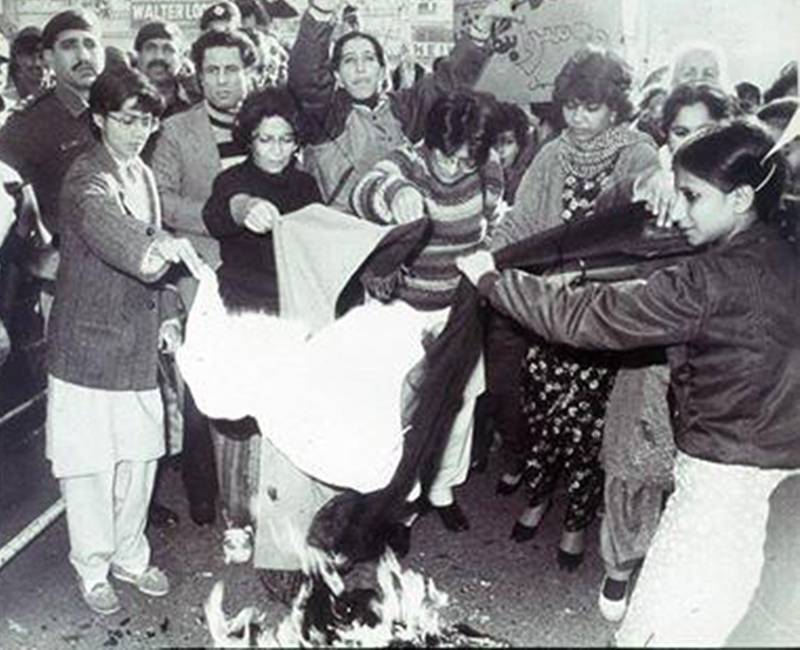We are enlightened about the wave of feminism in western states, through multiple literary sources. But most of us are not aware of the wave of emancipation of women in Pakistan during Zia’s regime.
In the present day, the status and narratives of women empowerment in Pakistan is deeply rooted with the struggle and efforts of women against ‘Islamization’ of Ziaul Haq.
32 years ago on February 12, 1983 Pakistani women realized for the very first time that they have to struggle against General Ziaul Haq’s ‘Islamization’ process. The ‘Islamization’ was not only discriminatory, but also deprived women of their basic rights in a radical society.
Every year we celebrate the day as ‘National Women’s Day’ to pay tribute to their struggle for the rights of women and restoration of democracy with its true essence.
The heroic step of these women against the military dictatorship were witnessed on the streets of Lahore as they broke the chains of martial law regulations. The dictatorial rule prevented them from carrying out rallies and processions, on grounds of basic democratic rights.
These courageous women of Women’s Action Forum (WAF) collaborated with women of Pakistan Women Lawyers’ Association (PWLA) and took to the streets. They marched from Hall Road towards the Lahore High Court to challenge the law of evidence. The law had been devised to mitigate the testimony of women as half of men.
Narratives from history remind us that when the struggle of these women reached the high court, they were welcomed by the revolutionary poet Habib Jalib. He paid the price of paying solidarity to these women by sharing incarceration with these revolutionaries struggling for an egalitarian, non-patriarchal and emancipated world for women.
Nighat Saeed Khan, who played pivotal role in the foundation of WAF, opens up and shared the vivid memory of that day. She recalled that the activists took on the oppressive military regime, when nobody was courageous enough to take steps against the series of discriminative laws against women. Women themselves had to stand up against the patriarchal society and challenged these discriminative laws in the court of law. WAF played a very significant role in this entire wave of struggle against the proposed law of evidence.
The struggle paid off when the morning of February 12, in 1983 attenuated proposed law of evidence, though ‘eyewitness’ was still an issue.
Another eye witness of this wave against Zia’s ‘Islamization’ – Farida Shaheed recalled that Shahnaz, a young activist who was crying while she tried to console her by saying that they all are facing baton charge together. However, her striking answer was
“Mein lathi charge ki waja se nai ro rahi. Bulkay dukh toh iss baat ka hai ke mein unse lathi hasil karny kay bawajod bhi badla na lay saki.”
(I’m not crying because of the baton charge. I’m upset because I couldn’t get vengeance despite taking the baton from them)
We need to make a commitment to ourselves that we will educate the masses for the establishment of a just and democratic Pakistan, where both men and women are equally recognized without any discrimination. We need to give them the right to live their lives with self-respect and dignity.






